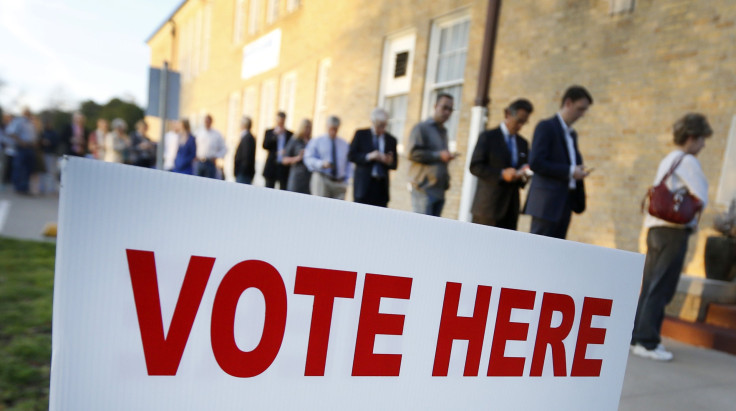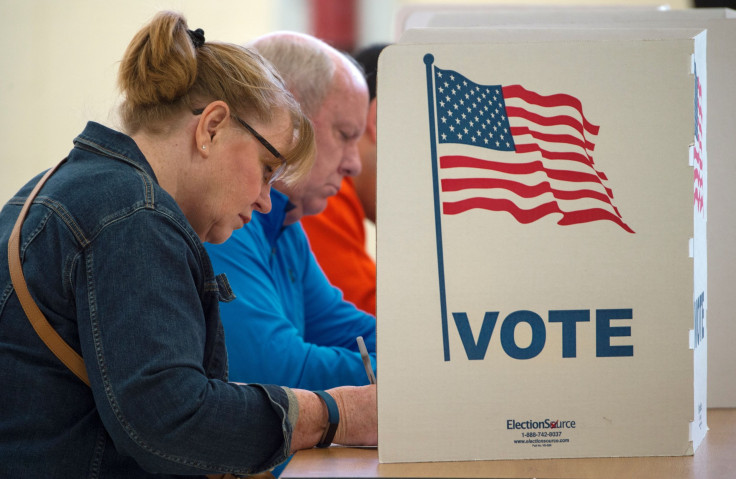What Is Voter Suppression? Donald Trump’s Election Commission Accused Of Trying To Violate Voting Rights

President Donald Trump’s commission on election integrity has been blamed of laying grounds for voter suppression after Kansas Secretary of State Kris Kobach sent out a letter to a number of states Wednesday, asking them to turn in personal details about residents who were registered to vote in the 2016 elections.
Voter suppression is an illegal tactic where political parties of a country try to influence the outcome of an election by discouraging or preventing citizens from voting, something that falls under their constitutional right. In the history of American politics, a wide range of strategies have been reportedly used by both the Democratic as well as the Republican Party to intimidate or disqualify voters, to try and win elections.
While physical intimidation and open discrimination based on race, origin or age were prevalent many years ago, voter suppression tactics have become a lot more subtle nowadays. Instead of hostility or other brutal methods of intimidation, disinformation and strict voter registration laws are the new methods of voter suppression, according to Rockefeller Center at Dartmouth College's paper on the topic.
Read: Voter Registration Data Breach: Unsecure Server Leaves Info On Nearly 200 Million Americans Exposed

In the 2008 elections, rumors suggested democrats and Hispanic voters in Nevada were getting prank calls telling them they could cast their votes a day later to avoid long lines or vote by phone calls or texts.
In reality, there are states where the legislation does not allow convicted felons to vote for the rest of their lives. Other than that, some states have stricter absentee, overseas, early voting, and same-day voter registration laws than other states, which are often misused for voter suppression tactics.
Even though any voter suppression is yet to be proved for the 2016 elections, the fact that of the more than 231 million eligible voters in the nation, 49.6 percent did not vote on November 8, raised a number of concerns among people and election authorities alike, Pacific Standard reported.
American Civil Liberties Union challenged obstacles to registration, cutbacks on early voting, and strict voter identification requirements in 15 states during the 2016 presidential elections. In May 2017, Trump signed an executive order that established the Election Integrity Commission, tasked with looking into the policies and practices that undermined confidence in the 2016 elections.
Read: Trump Won The Popular Vote, He Tells Nancy Pelosi
On Wednesday, the commission sent out letters ordering 50 states to turn over “publicly-available voter roll data including, if publicly available under the laws of your state, the full first and last names of all registrants, middle names or initials if available, addresses, dates of birth, political party (if recorded in your state), last four digits of social security number if available, [and] voter history from 2006 onward," the Hill reported.
In addition to that, the letter also asked the states to answer a few questions pertaining to the “law, policies or other issues hinder your ability to ensure the integrity of elections you administer.” Kobach, in his letter, made no qualms about the fact that data gathered through the formal request will be made public.
Virginia Gov. Terry McAuliffe however, made it clear he did not intend to comply with the request from Trump's commission and turn over information regarding voters of his state because he disagreed with the notion there was voter fraud in his state.
“At best this commission was set up as a pretext to validate Donald Trump’s alternative election facts, and at worst is a tool to commit large-scale voter suppression,” McAuliffe stated, the Hill reported.
Earlier Jason Kander, head of the Democratic National Committee’s Commission on Protecting American Democracy, said in a statement that the letter from the Trump administration demanding information related to the voter IDs to be handed over, was disconcerting.
"It's obviously very concerning when the federal government is attempting to get the name, address, birth date, political party and Social Security number of every voter in the country,” Kander said. “I certainly don't trust the Trump Administration with that information, and people across the country should be outraged."
© Copyright IBTimes 2025. All rights reserved.






















